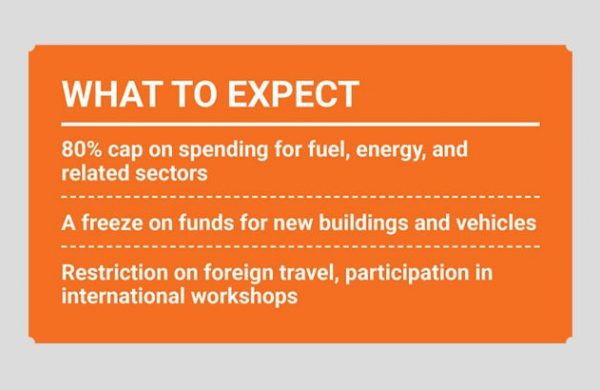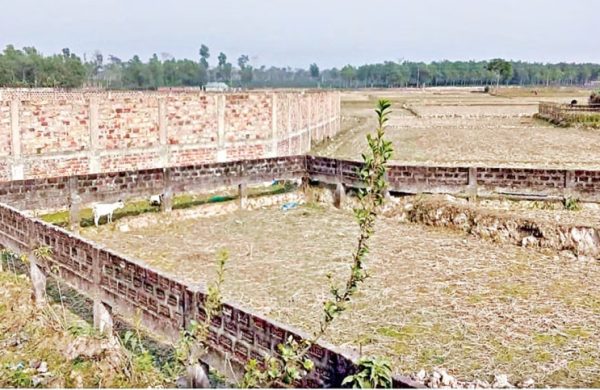Govt aims to cut expenditure by nearly Tk1 lakh cr
- Update Time : Tuesday, November 19, 2024

TDS Desk:
The interim government has initiated the process of revising the national budget for the ongoing 2024-25 fiscal year, originally announced by the ousted Awami League government in June.
The budget proposed in June outlined a total expenditure of Tk7.97 lakh crore, with a deficit of Tk2.56 lakh crore (excluding grants). However, sources from the Ministry of Finance have revealed that the interim government plans to reduce the total expenditure to Tk6.97 lakh crore.
This move comes under the Medium-Term Budgetary Framework (MTBF), which aims to prioritise key sectors while maintaining fiscal discipline.
The Ministry of Finance has issued directives for the revised budget, outlining the spending plans for both operational and development budgets.
The revised budget must stay within the total expenditure limits set in the original budget, with no scope for additional allocations. Unspent funds from the development budget cannot be transferred to the operational budget, as per the new guidelines.
In light of ongoing economic challenges, particularly inflation, the interim government has decided to revise the budget, focusing on reducing unnecessary spending and managing inflationary pressures.
The government has emphasised austerity measures, especially in the areas of transportation, land acquisition, and foreign travel, which are either restricted or require specific approval for expenditure.
The revised budget introduces several key directives aimed at controlling expenditure. These include a cap of 80% on spending for fuel, energy, and related sectors, alongside a freeze on funds for new buildings and vehicles, except for essential replacements.
Additionally, foreign travel and participation in international workshops are to be halted, with exceptions made only for urgent matters.
There is also a restriction on land acquisition spending under the operational budget, although such acquisitions may proceed under the development budget, subject to prior approval. These measures are designed to ensure fiscal discipline and prioritise critical needs.
The Ministry of Finance also provided guidelines for revenue collection and capital income projections, which should be based on revenue trends from the past two fiscal years and the first few months of the current year. Any increase in revenue collection rates should be reflected in the revised estimates.
For the Annual Development Programme (ADP), the government has outlined 13 key directives, including focusing on high-priority projects, especially in education, health, agriculture, and infrastructure. Projects funded by foreign loans or grants will be prioritised, while slow-moving projects will have funds reallocated to faster-implementing initiatives.
The revised budget is expected to streamline government spending, mitigate inflationary pressures, and foster economic stability in the country.


















